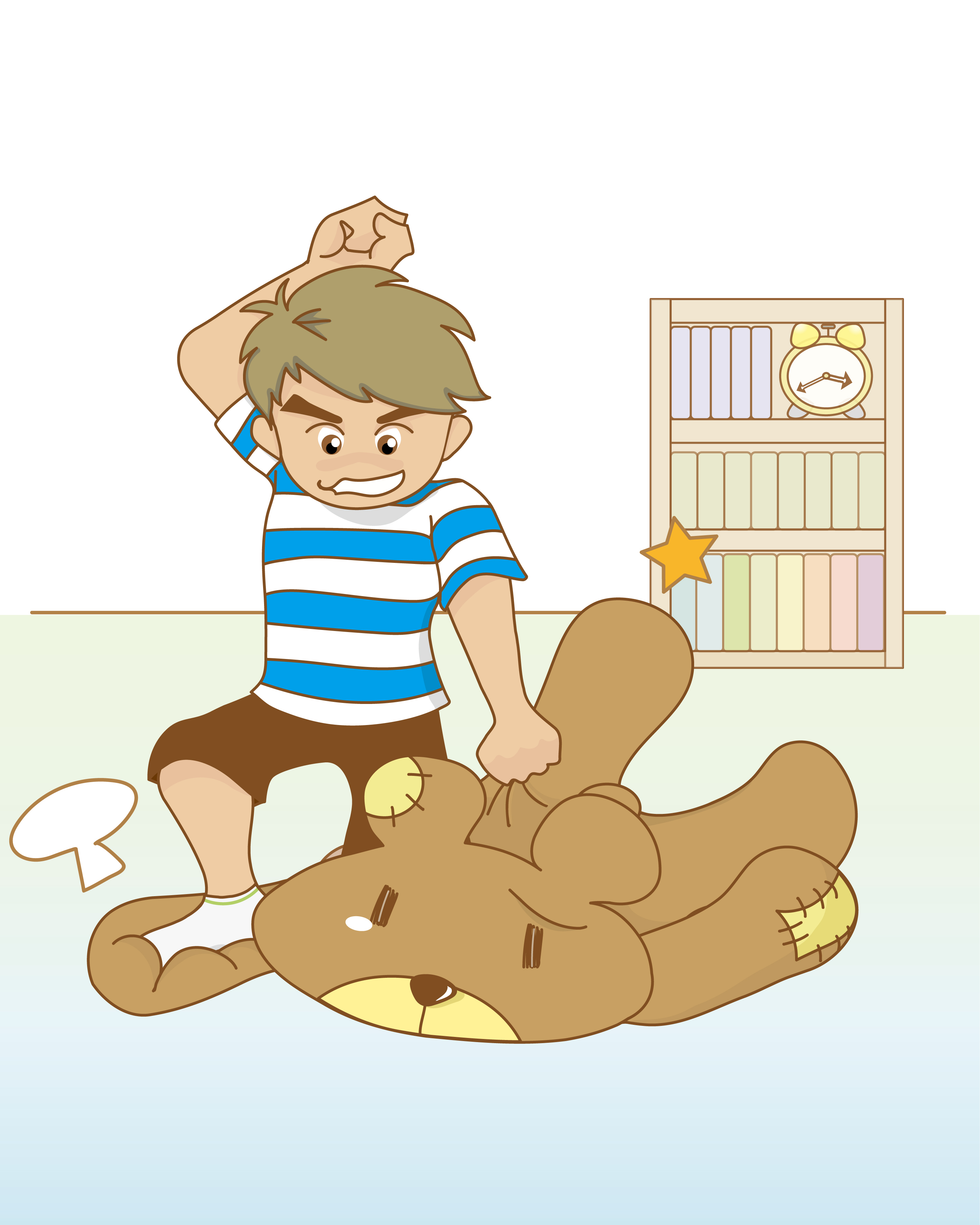A: Anger is an issue for many families, and although I would love to give you some firm answers here, I am afraid I cannot.
Here’s the thing with anger: No one wants to be on the receiving end of it. Children’s anger is exhausting and dispiriting, and of course parents want the anger to end — and now. We want for the child to simply stop being explosive or violent, making mean faces or using harsh language. This desire to just “make it stop” is normal, and I don’t blame you for feeling this way.
But because your son “has always been angry,” and because it got better (and now worse), and because his teachers noticed, and because he hits and cannot access his emotions . . . well, we need to get to the bottom of what is going on with your son. That he is angry we know, but why is the million-dollar question.
Here’s the cycle that I see most often when it comes to the “angry child.” We have a child who may have been born a tiny bit more sensitive. They feel their own and other’s emotions a little more intensely than some children. Or maybe their bodies are sending them mixed messages — feeling the world too much or too little. Or maybe the child is an extrovert born into a family of introverts (or vice versa). Whatever the case may be, there is some level of intensity, and there is frustration.
[sc name=”Button Conflict to Cooperation Right”]
Add to this intensity how we parent this child, and then we have some anger issues. I want to be clear: Not every child is angry because of the parent’s treatment, but in my experience, parents unknowingly grow the frustration and anger with their reactions. When a child is hitting or scowling or mean, our parenting instinct is often to punish. This isn’t wrong or right, but when it doesn’t work with the child (he becomes angrier, meaner, more violent), instead of choosing another strategy, we double down on consequences and punishments. It’s like not being able to speak a language, and instead of learning it, you just keep repeating your own language, but louder. It is not going to ever work.
Again, I don’t blame you for being frustrated, but this is your first bit of homework:
1. When did the anger really begin? And what has been your part of the frustration? I want you to zero in on the “when he does this, I do that” dynamic, and what you may discover is something like this: “Robert became angry after his brother was born and he went to school. I had a hard pregnancy and wasn’t really emotionally available for anyone, including myself. That’s when he started getting angry. We have been mostly punishing him since.” Again, I don’t know what you’ll find out, but you must dig down if you want to help your son.
2. Acknowledge that what you are doing doesn’t work. Obviously, you know this, because you wrote to me. (Good first step!) But I want you to make a list of what isn’t working, from the punishment, to forcing him to talk about his feelings, to dragging him to his room, whatever it is. Again, this is not a tool of shame: This is a tool of clarity. The clearer you get about how you can control yourself, the easier the path forward.
3. Accept that anger is a form of frustration, and connection is the answer to this problem. Yes, you must stop him from harming humans and houses, but your son needs to feel you come alongside him, not work against him. The hard part of this positive work is that it takes time; there are no overnight fixes. I would recommend getting support to encourage you as you do this work. Also, pick up “The Explosive Child” by Ross Greene. I love his practical and positive vibes when it comes with working with difficult kids, and he has worksheets that help. I also love “How to Stop Losing Your Sh*t with Your Kids” by Carla Naumburg for a lighter (but still important) tone and for keeping yourself accountable.
4. Watch the boundaries. Just as I don’t want you to use behavioral strategies to control your child’s behavior, you do need to begin to meet with him to create some rules that you will stick to. For instance, you may allow ugly faces (because, really, who cares?), but hitting people will not be permitted. You may allow him to yell while in his room, but he cannot call names to everyone in the house. Work with your son in small, limited ways to keep boundaries firm and friendly while also not lowering the hammer on everything.
Finally, please get support. If your son has had anger issues forever, you will want to call his pediatrician and do a full work-up to check for any allergies or other issues. I would also recommend working with a neuropsychologist to check on learning issues, executive functioning issues or anxiety.
And it goes without saying, but please check into trauma (known or not), as trauma often has a way of showing up as anger in young children.
Good luck.
Find this over on The Washington Post.
Looking for more parenting support? Find all of Meghan’s resources here.
